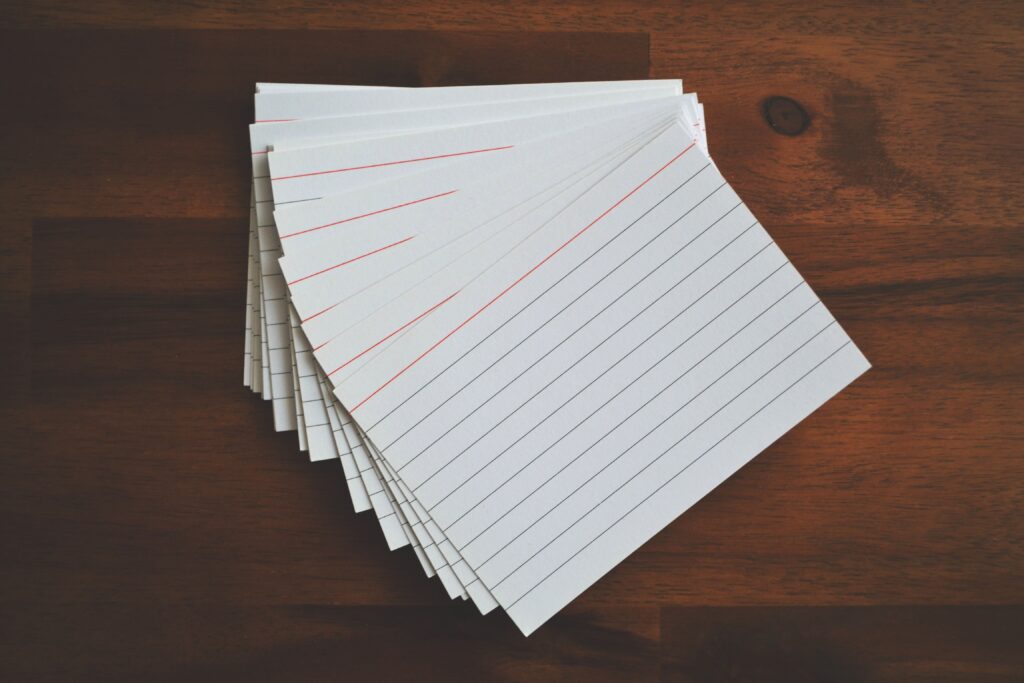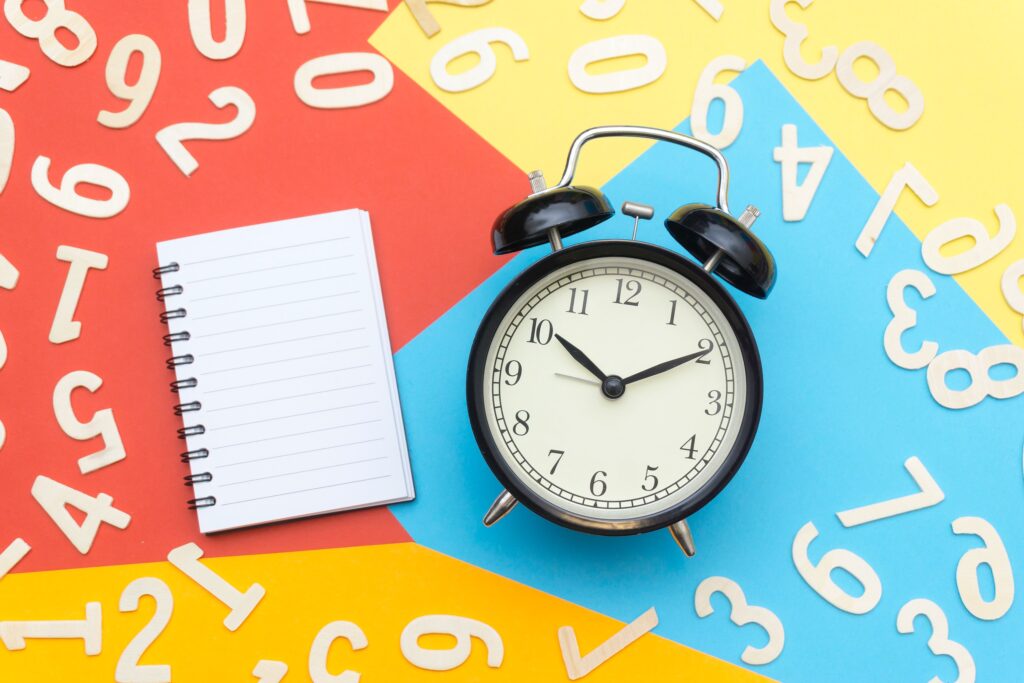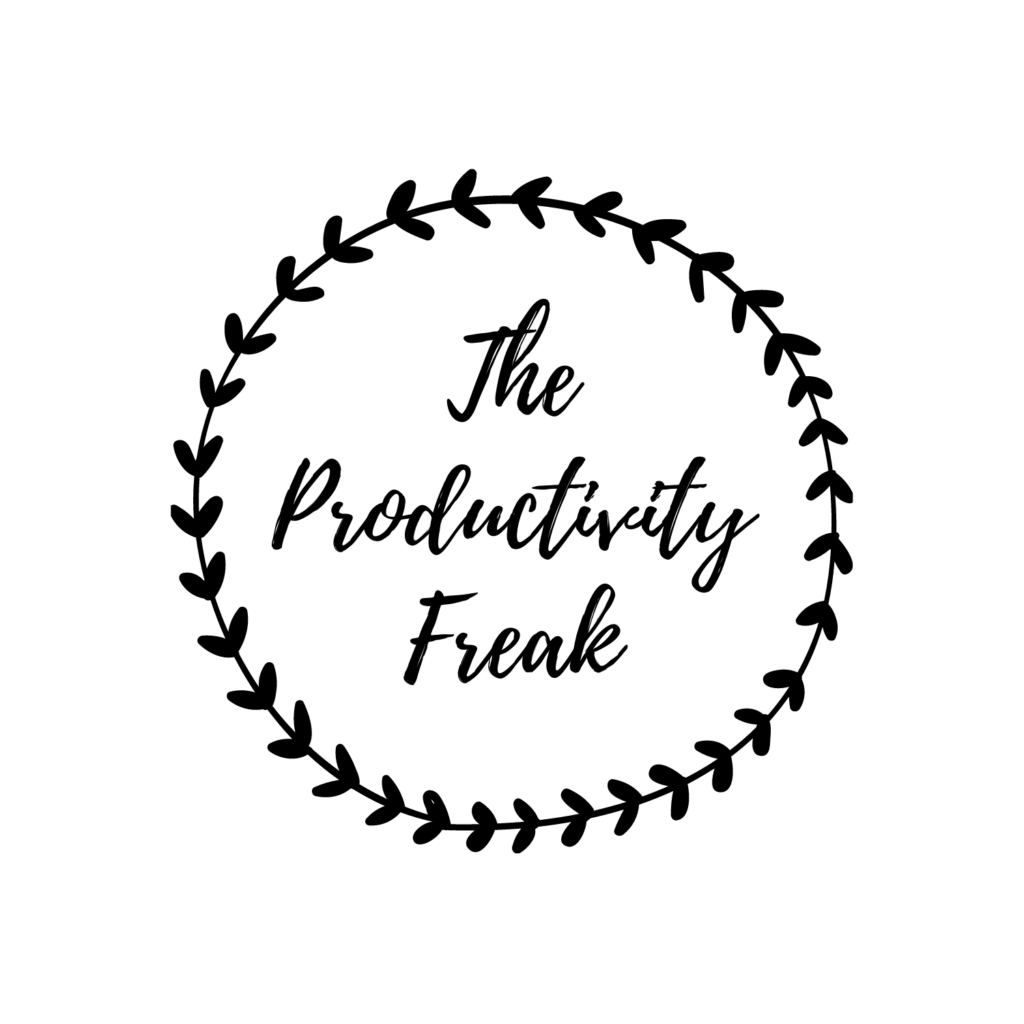So, the exam season is approaching, and we are all getting goosebumps thinking about how we will be able to cover such a vast portion in just a day?
Most exams usually have a day’s gap between each paper.
That is why it is very important to smartly plan your study so that you can utilize this time most efficiently.
And like always, I am at your rescue with efficient tips that I have tried and tested which will help you to tackle that never-ending portion a day before the exam.
Table of Contents
- Set your Priorities Right!
- Prepare Flash Cards
- Set a specific time frame to revise each chapter
- Don’t talk to any of your friends giving the same exam
- Pack your bag
- Bonus Tips to relieve exam stress
By the end of this blog post, you are going to know exactly how you need to prepare for your exam a day before.
But don’t worry I am not going to tell you to pull an all-nighter, these steps are going to be very manageable and equally effective.
I will also be giving you some bonus tips towards the end on how you can reduce your stress during the exam period and also on how you can overcome exam fear.
So, grab a pen and a notepad and let’s get started.
#Set Your Priorities Right!
By this I mean, you need to pick up the most important chapters and finish revising them first.
Seems like a no-brainer right?
However, more often than not, students make the mistake of studying the easiest or their favorite chapters first.
This will set you back in your preparations and by the end of the day, you may realize that you have covered only 40% of the paper pattern, although it might have seemed like you have studied a lot of chapters.

I have been there too.
This happens mainly because we tend to value quantity over quality.
There may be quite a few chapters that are easy but don’t have much weightage in the exam, whereas there may be 2-3 fairly difficult chapters that cover most of the paper.
That is the main reason why you should,
‘Study Smart and not Hard.’
Here are steps that you need to follow to prioritize your preparations so that you can maximize your success rate with minimized efforts :
Step 1: ABC Analysis
In this method you have to give the following ranks to your chapters :
- A – Very Important
- B – Important
- C – Moderate
This analysis is based on past exam papers.
You need to go through all the past papers and analyze:
- Which chapters have been repeatedly asked and carry the maximum weightage (A Category)
- Chapters that carry moderate weightage and may be asked in alternate semesters (B Category)
- Chapters that carry the lowest weightage and are not asked in the exam that frequently
(C Category)
Step 2: Target the A Category Chapters first with a mix of the C Category
After you are done with the above analysis, you need to start with the
A category chapters at the start of the day when you are fresh.
The best way to remain the most productive is to pick up the first chapter of the highest importance, complete it, and then do one C category chapter.
In this way, you are letting your mind relax after studying a difficult chapter by revising a relatively easy one.
If you dive straight into all the A Category lessons, you will be exhausted before lunch and you might not be able to retain all that you have studied.
So, study the ‘A’ chapters and the ‘C’ chapters alternatively.
After you have finished with the A’s you can start with the B’s and continue revising it alternatively with the C’s until you finish both.
General Pointers
- The ABC analysis should ideally be done well before the exam days. However, in case you were unable to do the same, quickly go through the past papers and jot down the alphabets.
- Take adequate breaks between lessons and also in between vast concepts, if required.
- Stay hydrated and eat healthily, you can catch a 20-minute power nap in the afternoons just to energize.
- Avoid caffeine foods, especially coffee to boost your energy.
Trust me, it is only in your mind. Try to convince yourself that you are energetic and that you can do this!
#02 Prepare Flash Cards
Preparation of flash cards is very helpful on the morning of your exam.

You just need a flash of the most important concepts, because often these are the ones that are most difficult to remember.
Having to go through the whole textbook, just to revise a few concepts might end up being very time-consuming and you will also get stressed looking at the long chapters.
Instead, what you can do is, as you revise the chapters on the day before the exam, you can quickly prepare these flash cards.
And by having a look at them the next morning, you are going to gain that extra bit of confidence that you need to ace the exam lying ahead of you.
Now, there are two ways in which you can make flash cards:
- The Question-Answer Method
Under this method, you write the important concept on the back of the card and a related question on the front.
This method is helpful if you gain confidence by testing yourself.
However, I will not recommend using this method for your semester exams because
- It is time-consuming to prepare if you are making it just on the day before the exam.
- If you are not good at memorizing, not knowing the answer in your head, is going to stress you out.
But this method is very effective if you are giving regular tests and if you simply want to revise the concepts during the year so that they remain fresh in your mind.
For your mains, I would recommend using the next method.
- The Piece Meal Method
Under this method, you divide all the important concepts into small pieces that are easy to consume when you are traveling or just before you enter the exam hall.
The reason I recommend this method is because, it is not time-consuming to prepare, and it is very easy to revise which in turn boosts your confidence level.
Another advantage of this method is that, your mind does not have to go through the question answer grind and very less likely to get nervous.
But that is just my suggestion, you can try out both the methods and see what suits you best.
Points to Remember
- Prepare flashcards only for the important concepts, don’t replicate the whole chapter.
- Try using colorful paper and sketch pens. This is because we tend to remember visually appealing things faster than the ones that look dull and boring.
- If you have too much on your plate to revise and you think preparing these cards would waste your time, then don’t prepare it. Remember, completing one whole revision of your portion should be your top priority.
- Once you have finished preparing all the flash cards, staple them together, so that you don’t spend time arranging them multiple times. This way, you will also not lose any of the cards.
#03 Set a Specific time frame to revise each chapter
The challenge on the day before the exam is a race against time.
You need to plan your time in such a way that you are able to maximize the portion coverage.
That is why, you need to set specific time frames for each chapter.

An illustration of this would be:
- Chapter 1: Photosynthesis – 30 minutes
- Chapter 2: Human Reproduction system – 45 minutes
- Chapter 3: Motion – 1 hour 30 minutes so and so forth.
This is going to help you track your progress and you can take corrective steps to get back on track in case you go off track.
And my strongest advice here would be, DON’T schedule for more than
7 hours of study.
I believe that the most important thing to do a day before the exam is to rest sufficiently. And anyway, if you plan for 7 hours it will get extended to 7.50 or 8 hours.
And STOP at the 8TH HOUR MARK.
Now, why do I advocate rest so much?
This is because to score the maximum marks, you need to produce all that you have studied the previous day and throughout the year on your answer sheet.
And you need to do this in a 2 or 3-hour time frame
(whichever is applicable to you).
You are talking to the examiner through your paper.
All of the following has to come out in your paper:
- Your accurate answers – that you have so diligently studied.
- Your neat presentation – that you have prepared for.
- Your charts and diagrams – that you managed to make, even with the time constraints.
And you can do this, only if you have rested well and you are fresh to write the paper.
The examiner is not going to know how many hours you have put in, the night before and how many sleepless nights you have had just to get a concept right.
All the above hard work has to get reflected in your exam paper. That is when you are going to pass with flying colors.
So, long story short.
As you concentrate on finishing your revision, also focus on getting adequate sleep, and also eat healthy.
#04 Don’t talk to any of your friends writing the same exam
This is a mistake a lot of students make.
Now, I am not saying you need to ignore them.
But, if your friends are in the habit of calling you up a day before the exam, tell them what I’m about to tell you.

The exam period is a stressful one. You are nervous about the questions that are going to be asked, whether you will be able to remember all the answers, so on and so forth.
Many are under this misconception that talking to their friends is going to relieve the pressure. On the other hand, it is going to do just the opposite.
When you talk to your friend, the subject of the upcoming exam is going to pop up somewhere in the conversation.
Then you are going to discuss how many chapters either of you has completed, what are the chapters that each of you thinks are important, etc.
And more often than not you end up feeling that your friend is better prepared than you are.
This makes you very nervous.
The ultimate result is you are not able to concentrate on what you were planning to study next.
So, don’t have that conversation in the first place.
If you are able to avoid the exam discussion while speaking to your friend, then it’s fine. You can talk to them and reduce your stress.
But this never happens. That is why, be with yourself and if you are getting too stressed you can follow the tips I have given towards the end of this post.
#05 Pack your bag
I wanted to include this here because students don’t really consider this important.
Maybe you are not in the habit of packing your bags the night before, on regular days.
But I would highly recommend that you do so, during the exam days.
This is because in case you forget to carry something essential, your exam hall supervisor is not going to let you borrow anything from anyone during the exam.
So, pack your bag the night before the exam and ensure you have kept all your essentials in your bag.
Also, another tip here would be, carry all your stationery items in pairs.
This means if you need a calculator for the exam, carry two of them.
This is because in the worst-case scenario of your original calculator stops working, you always will have a back-up.
Tips to relieve Exam stress
Here are some very basic tips that I used to and still follow to relieve not only the exam but any kind of stress.
These are purely suggestions; you can always work around them and see what suits you the best.
- Listen to some soft music before going to bed.
- Take a walk around your house.
- Try doing 10-15 squats.
Exercise releases endorphins (happy hormones) which help in reducing stress. - Dance, if you love dancing.
- Always pray before you start writing your paper, this will help in boosting your confidence.
So that is it from me.
All the best for your exams.
I have another article about the 12 Exam Paper Presentation Tips you probably didn’t know which is also going to help you ace your exams.
I hope this article has helped you. Let me know in the comments section below about what I should be writing next.
Until then, Happy Reading ?





One thought on “Apply these 5 Secret Techniques to improve your exam preparations a day before”
Comments are closed.